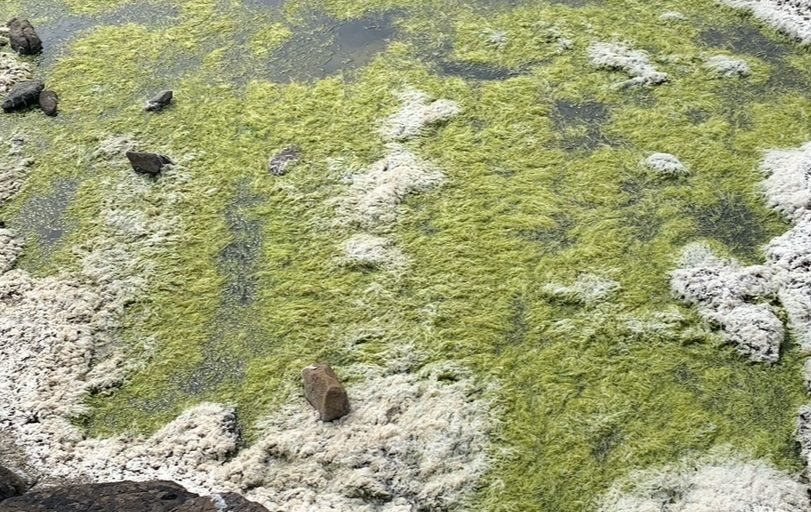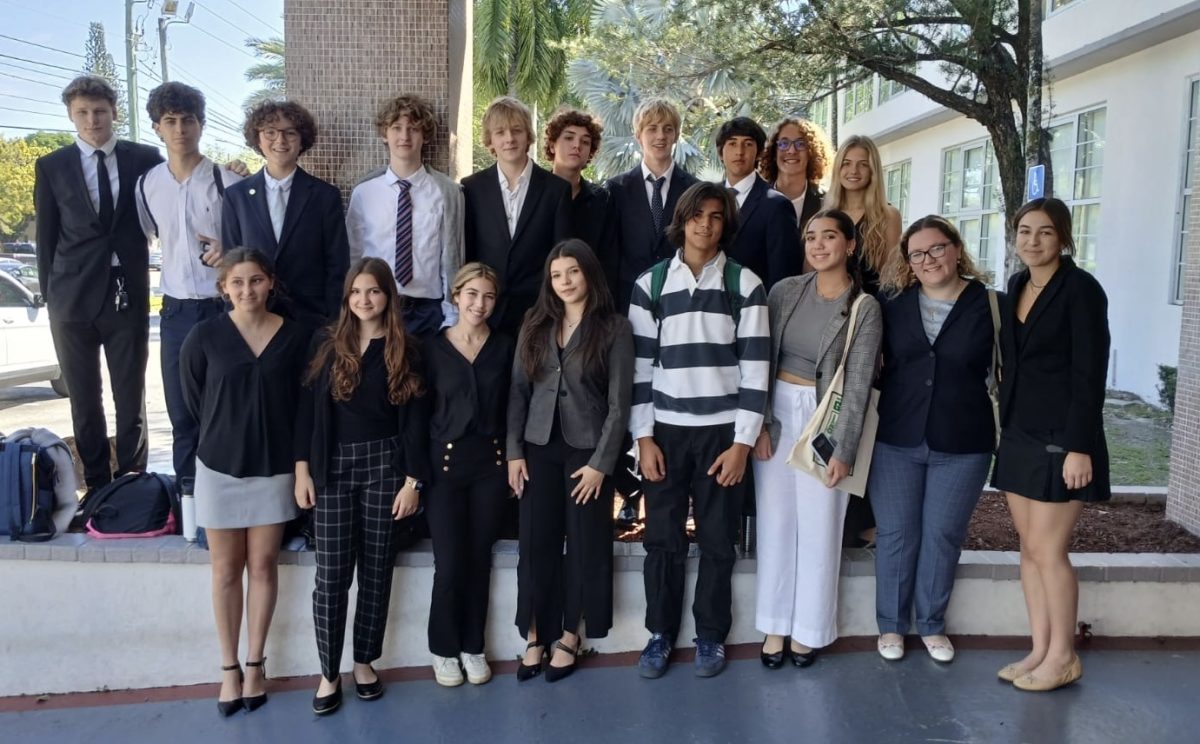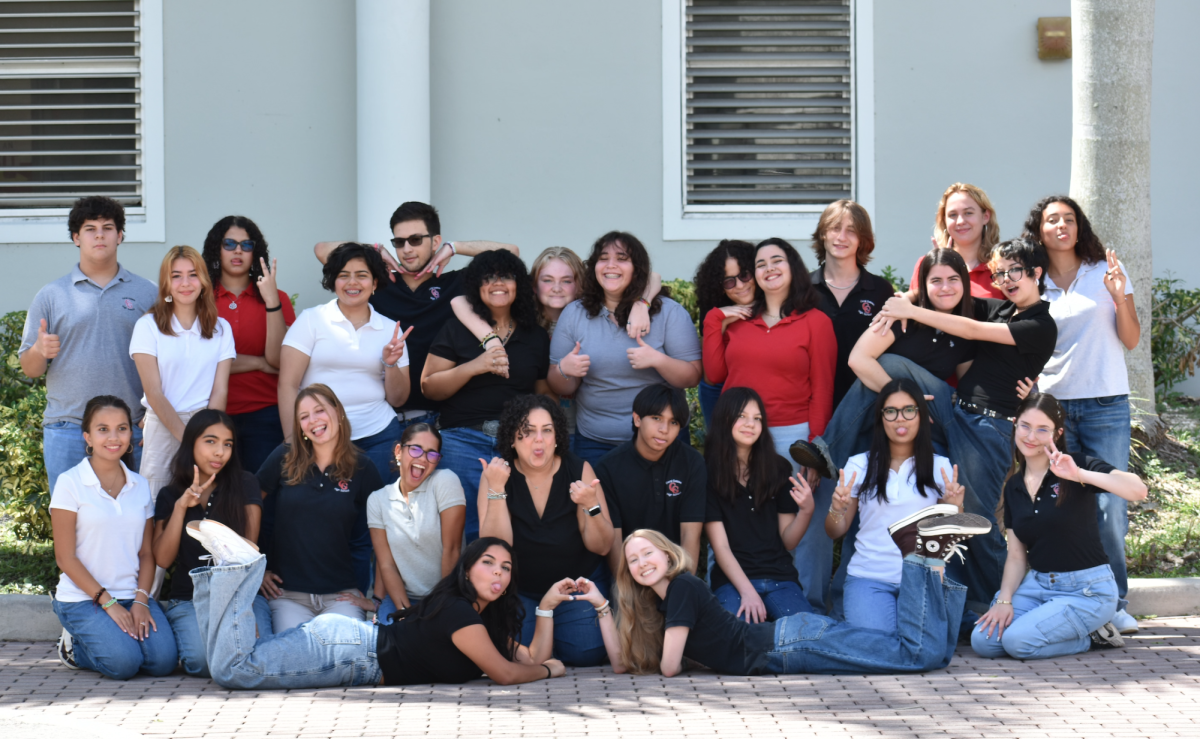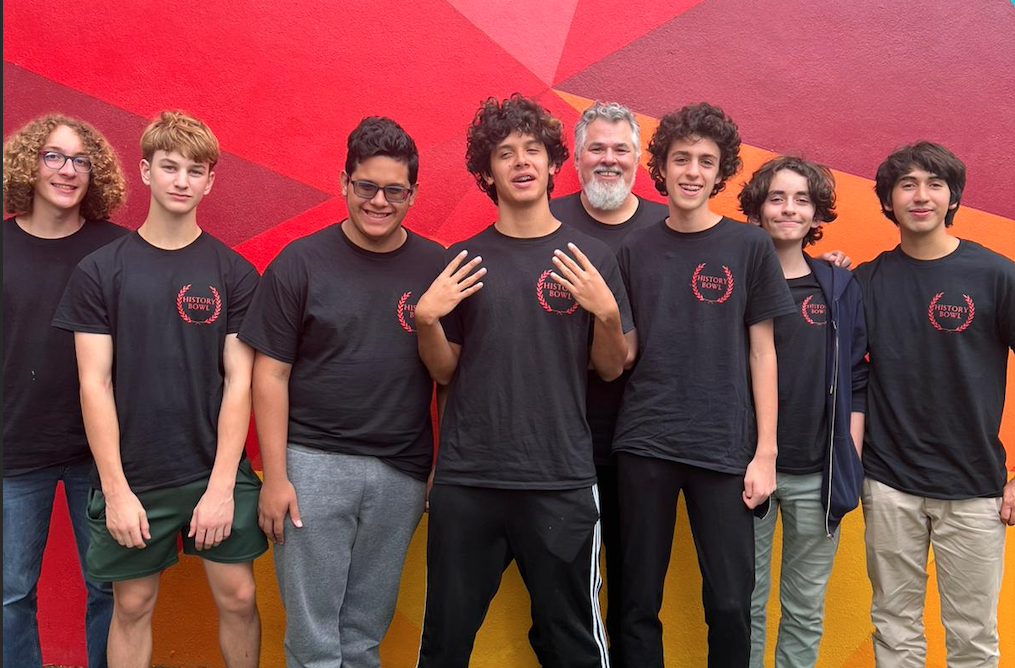As Floridian ecosystems become increasingly threatened by toxic algae invading the coastline, symptoms of warming oceans and environmental apathy wash up on Miami’s beaches. Miami Dade County, with the intention of maintaining the environment, has financed sustainable algae reprocessing to combat the ever-present issue.
Sargassum algae, a species that provides small ocean life in tropical oceans with sustenance, has recently accumulated in massed on South Fl. shores. The algae can grow extensively in short periods of time, known as algae blooms, mainly attributed to warming oceans, which allow considerable algae populations to prosper.
“Our oceans are under constant bombardment by chemicals and runoff waste that support algae growth. These unnatural carpets of algae ruin ocean ecosystems and prevent ocean life from surviving. Spending government funds on our environment is warranted,” Mr. Miller said.
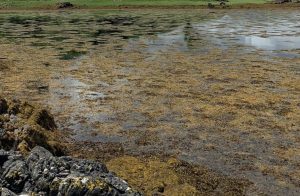
Major blooms, from 2019-2021, saw the algae’s negative effects on the overwhelmed beaches in the Miami area. The sargassum accumulations ruined beach sand, their shoreline and aquatic animal ecosystems. Additionally, decaying algae byproduct produced ammonia gas, harmful to the skin and lungs of beach traffic.
Originally, the governmental response to toxic algae was collection, transport and landfill disposal. This method, however, has cost MDC over 35 million dollars annually. In response to the blooms of recent years and those predicted to occur in the future, the county has invested in sustainable solutions to the ecological problem.
“Living in Miami, I go to the beach a lot and I’ve seen algae blooms first hand. Cleaning up harmful types of algae and then sustainably recycling them can be helpful to the community and environment. Rather than creating more waste we can create sustainable materials and fuel sources,” freshman Marco Gonzalez said.
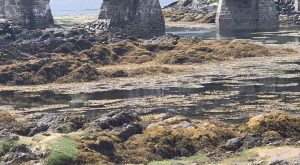
The Miami-Dade Innovation Authority, a government agency dedicated to connecting local government to technological businesses, introduced the Inaugural Innovation Challenge. The contest would grant companies with environmentally friendly, sustainable and practical solutions to the organic waste issue $100,000 to continue investigation and apply their solutions in spring of 2024.
Among the competitors were EcoChar, Algas Organics, Adar Technologies, Shore Lock, Biogas and Chemergy. Each company used innovative methods to turn the organic matter into a sustainable product. Their largest challenge was removing the heavy metal and arsenic traces found in the sargassum before attempting to sustainably reuse it.
Eco Char attempted to burn the sargassum into an agricultural fertilizer called biochar. The char is rich in phosphorus, potassium and magnesium, making it a powerful soil accompaniment that increases water retention. Similarly, Algas Organics used their fermentation process to remove heavy metals and other harmful contents from the sargassum, while stimulating its organic properties. Both companies created a renewable fertilizer that sustainably stimulates plant growth.
“Creating renewable energy sources is essential to human longevity. If we recycle algae into sustainable products we prevent organic materials from going to waste. By being conservative we help the environment,” freshman Erik Hjelm said.
In addition, Adar Technologies manufactured a machine that turns wet algae into a dry constructive material. The final product can be applied to constructive products as a base in cement solutions. ShoreLock, a company operating in Miami, created a liquid compound, made from algae, designed to reduce coastal erosion by the strengthening the bond between salt-water and sand. In practice, the product reduces the amount of sand pulled back into the ocean, drastically reducing erosion.
With the goal of sustainable energy, Biogas and Chemergy add algae to the equation. Biogas, as implied by the name, recycles organic waste and makes into a sustainable gas; the company also emphasizes their water treatment capabilities following sargassum blooms. Chemergy creates low-cost, renewable hydrogen made from organic and plastic waste. Their chemical system separates useful components of algae from the dangerous or unusable substances.
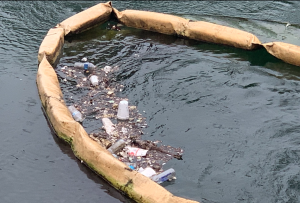
The six companies will begin testing their inventive ideas in the spring of 2024, the time of the year with the highest amount of sargassum blooms. The Nature Conservancy, a conservation project focusing on protecting and maintaining the ecosystem globally, will decide which three of the six companies will receive the funding of $100,000 to further research. The winning companies will have the opportunity to fully develop their innovative solutions and launch them in the years to come.
“Global warming has effected our environment for years, especially our beaches. The state of our oceans is dependent on our investment in its protection and cleansing. Spending money on the local economy is important to small business and our city,” junior Vicente Larrauri Puente said.



